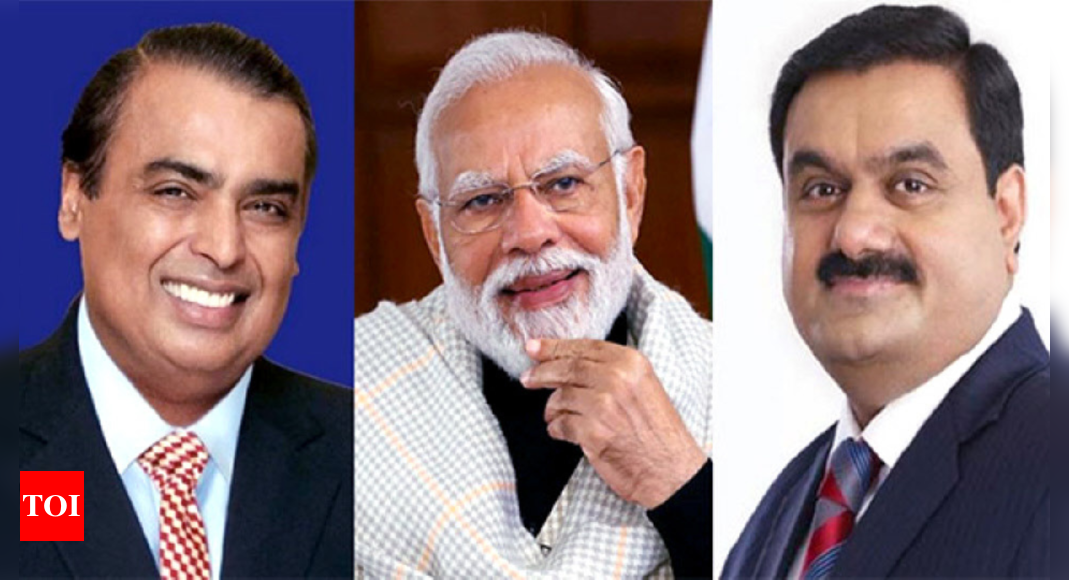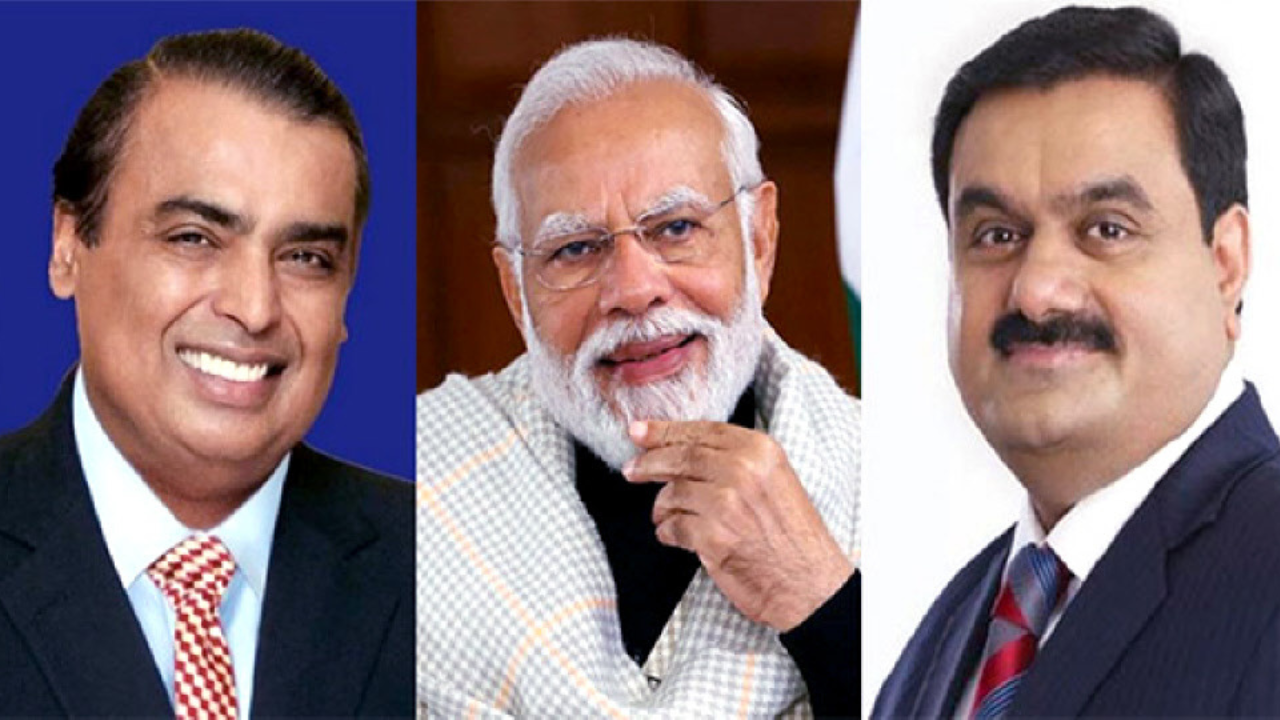India is poised to become a 21st-century economic powerhouse, offering an alternative to China for investors looking for growth and for reducing supply chain risks with PM Narendra Modi and industrialists Mukesh Ambani and Gautam Adani playing a fundamental role in shaping the economic superpower the country will become in the coming decades, says a CNN report.To spur growth, Modi govt has begun a massive infrastructure transformation. It is also heavily promoting digital connectivity.
“Both Adani and Ambani have become key allies as the country embarks on this revolution,” it said. Reliance Industries and the Adani Group, the two conglomerates having valuations worth over $200 billion each, have established businesses in sectors ranging from fossil fuels and clean energy to media and technology.
“Investors have been cheering the duo’s ability to adroitly bet on sectors prioritised for development by Modi,” the report said, adding, “As a result, these three men — Modi, Ambani and Adani — are playing a fundamental role in shaping the economic superpower India will become in the coming decades.” It also pointed out that the kind of power and influence being enjoyed by the two tycoons has been seen before in other countries “experiencing periods of rapid industrialisation”.
It said both Ambani and Adani are often compared by journalists to John D Rockefeller, who became America’s first billionaire during the Gilded Age, a 30-year period in the last decades of the 19th century.
“India is in the middle of something that America and lots of other countries have already gone through. Britain in the 1820s, South Korea in the 1960s and 70s, and you could argue China in the 2000s,” said James Crabtree, the author of The Billionaire Raj, a book about India’s wealthy. It is “normal” for developing nations to go through such a period of rapid growth, which sees “income accumulation at the very top, rising inequality and lots of crony capitalism,” he added.
Guido Cozzi, professor of macroeconomics at the University of St Gallen in Switzerland, said the these “conglomerates are very, very important and very well connected,” noting that both the Adani Group and Reliance Industries were founded years before Modi came to power.
“They are not typical stagnant monopolistic conglomerates. They are pretty dynamic,” Cozzi said. Not only are they playing “an important role” in building infrastructure, which helps “growth directly,” but the two business groups are also helping the country expand “indirectly” by boosting connectivity through digital innovation, he explained.
“Both Adani and Ambani have become key allies as the country embarks on this revolution,” it said. Reliance Industries and the Adani Group, the two conglomerates having valuations worth over $200 billion each, have established businesses in sectors ranging from fossil fuels and clean energy to media and technology.
“Investors have been cheering the duo’s ability to adroitly bet on sectors prioritised for development by Modi,” the report said, adding, “As a result, these three men — Modi, Ambani and Adani — are playing a fundamental role in shaping the economic superpower India will become in the coming decades.” It also pointed out that the kind of power and influence being enjoyed by the two tycoons has been seen before in other countries “experiencing periods of rapid industrialisation”.
It said both Ambani and Adani are often compared by journalists to John D Rockefeller, who became America’s first billionaire during the Gilded Age, a 30-year period in the last decades of the 19th century.
“India is in the middle of something that America and lots of other countries have already gone through. Britain in the 1820s, South Korea in the 1960s and 70s, and you could argue China in the 2000s,” said James Crabtree, the author of The Billionaire Raj, a book about India’s wealthy. It is “normal” for developing nations to go through such a period of rapid growth, which sees “income accumulation at the very top, rising inequality and lots of crony capitalism,” he added.
Guido Cozzi, professor of macroeconomics at the University of St Gallen in Switzerland, said the these “conglomerates are very, very important and very well connected,” noting that both the Adani Group and Reliance Industries were founded years before Modi came to power.
“They are not typical stagnant monopolistic conglomerates. They are pretty dynamic,” Cozzi said. Not only are they playing “an important role” in building infrastructure, which helps “growth directly,” but the two business groups are also helping the country expand “indirectly” by boosting connectivity through digital innovation, he explained.










